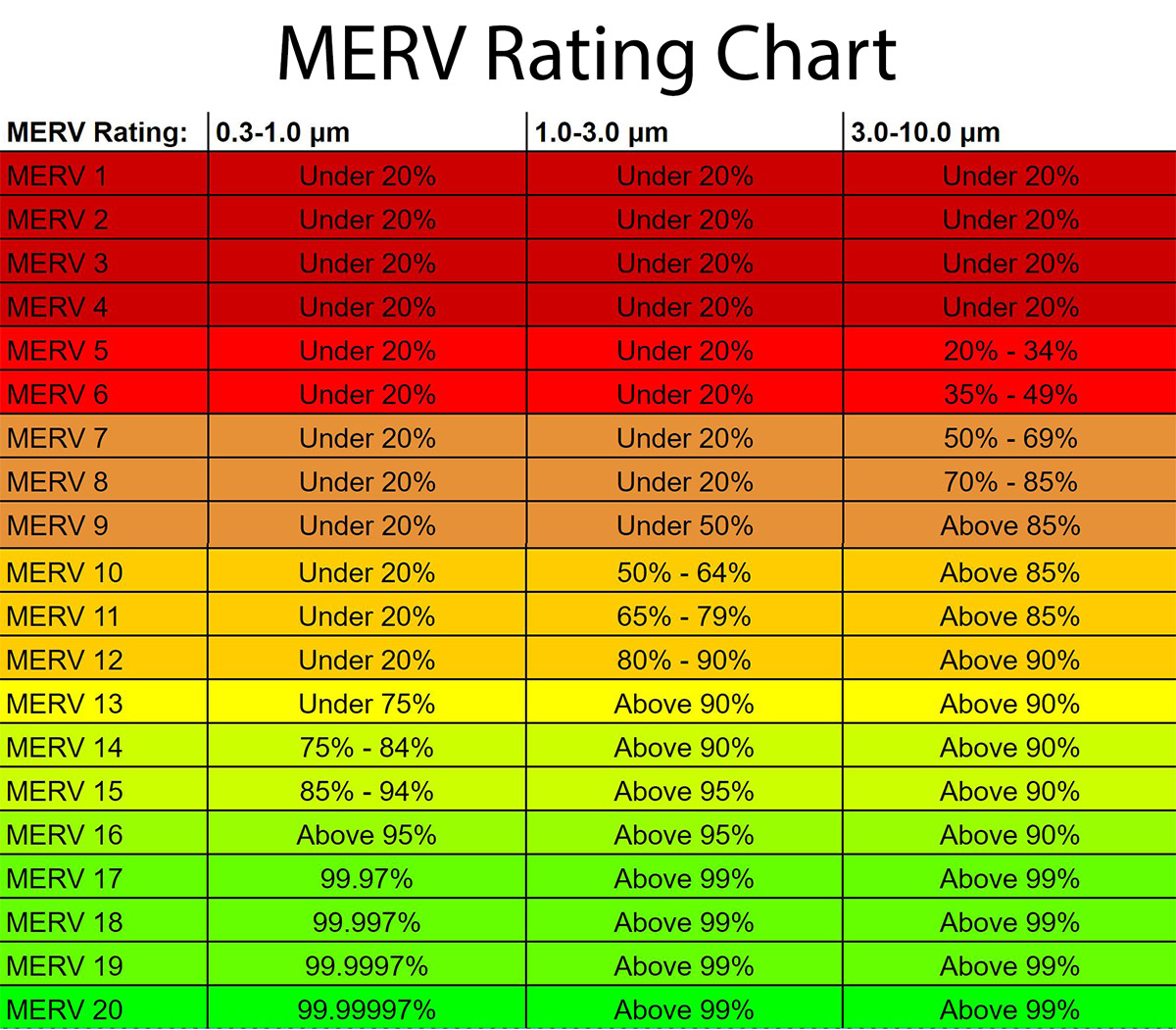UNDERSTANDING HOW MERV RATING WORKS IN AIR PURIFICATION
A MERV, or Minimum Efficiency Reporting Value, tells you how effectively an air filter can function to remove pollutants from your home. MERV was created to simplify purchasing air filters. Here is additional information about MERV ratings:
Understanding MERV ratings
The range of the MERV scale is 1 to 20. Filters with greater MERV ratings can efficiently clean the air within your home. An air filter with a MERV grade between 1 and 3 can capture less than 20% of big particles with 3 to 10 microns sizes. Dust, pollen, moss, paint, garment fibers, pet hair, and human hair are a few examples of these impurities.
Filters with a MERV rating of 4 are typically made of fiberglass and can capture bigger particles and dust mites. Although they’re quite cheap, you must replace them monthly to keep your HVAC system operating efficiently. Up to 70% of big particles can be captured by a cotton pleated filter with a grade between 5 and 7. Air filters with a grade of 8 to 10 can capture around 85% of large particles and 50% of microscopic particles. These include a few different kinds of microorganisms, biological development, and smoke.
The typical MERV rating for whole-home air purifiers or air cleaners is between 9 and 16. An HVAC technician can also add this filter to your HVAC system’s ductwork to improve your current air filter. It can capture most tiny particles and certain viruses.
Filters with even higher ratings that can eliminate even the smallest particulates from the air are used in hospitals and areas for assembling or repairing complicated devices. They are, however, significantly more expensive than alternative choices.
Why does merv’sMerv rating matter?
The quality of your indoor air
The indoor air quality will improve by using filters with higher MERV ratings. The correct air filter can help prevent many health issues, including eye irritation, sore throats, rashes, headaches, exhaustion, and asthma or allergy symptoms.
Your energy efficiency
Higher MERV-rated air filters need more energy to function properly since they let more air into your home through fewer openings. If you select a filter with a too-high rating, your utility costs may increase. MERV ratings for most air filters range from 8 to 13. They are effective for those without allergies or other health issues, and as long as you change them frequently, they shouldn’t raise your energy costs.
Your HVAC system.
Filters with poor ratings can cause dust and other contaminants to travel through the ductwork in your home, raising maintenance costs. On the other hand, your home will become overly hot or chilly if you choose a filter with a rating greater than the one advised for your HVAC system because the airflow will be reduced. Additionally, it may result in uncomfortably frequent breakdowns, increased wear, and a shorter lifespan for your system.
The takeaway
Before selecting an air filter for your heater or air conditioner, please consult a professional to determine which MERV rating will keep it operating properly and increase your comfort.
Read more: Poker Myths: The Top 7 That Players Still Believe In

